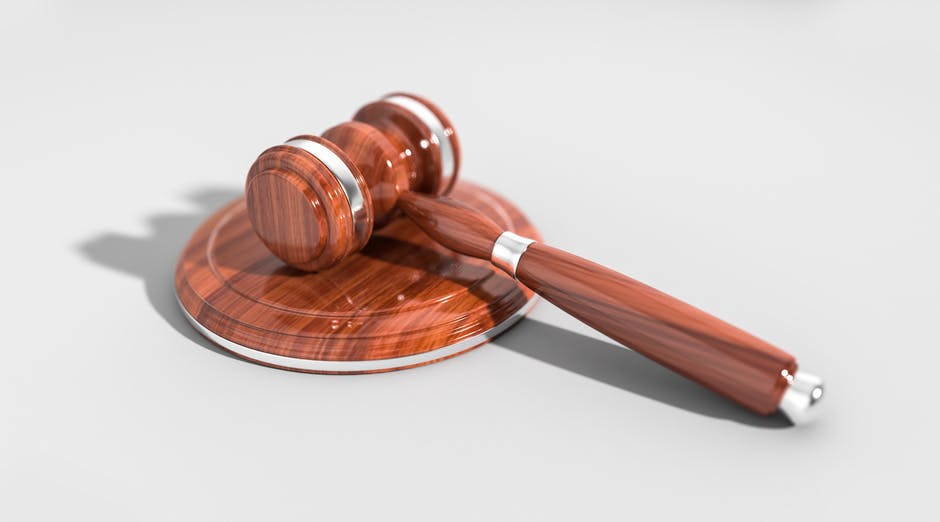No one wants to be evicted from their home.
Whether you are a long term or short-term renter, one of the worst things that can happen to you and your family is to be served an eviction notice.
If you think you might be evicted, or are being evicted, it is vital that you know your rights.
Don’t assume that your landlord knows the law. Many landlords don’t.
Your landlord may not follow the proper eviction procedure when evicting you. You may be able to fight back.
Or, you may have more time to find a new place than you think.
Read on to learn all about Florida’s current eviction laws and the ways that both you and your landlord can use them to your advantage.
The first step in any legal battle is being informed.
Step One: Notice for Termination
In Florida, a landlord can evict his or her tenant for several reasons. The first thing he or she must do is to end the tenancy. According to Florida state eviction laws, the landlord must give the tenant written notice to do this.
The notice must be in writing to be legally binding.
There are two categories of termination of tenancy. Both require the tenant and his or her family to vacate the residence, but one is with cause, and one is without.
Termination of tenancy without cause just means the landlord wants the tenant to move out for a reason that is not the tenant’s fault. This could be for any number of reasons including intent to sell the building or unit, a desire to remodel the space to raise the rent or simply because the landlord wants to live in the apartment or unit himself.
Termination of tenancy with a cause is because of the fault of the tenant. A landlord may give notice of termination of tenancy with cause for unpaid rent, for lease or rental agreement violations or an illegal act on the property.
Both cases are no fun for the tenant. It’s crucial that you know your rights in either case, though, and that you and your landlord both follow proper legal procedures moving forward.
Notice for Termination Without Cause
Sometimes, a landlord just wants his or her property back for personal reasons. The tenant did not do anything wrong in this case, but he or she must move out.
If your lease is month-to-month, Florida landlords only have to give fifteen days of notice in writing.
Hopefully, if you have a good relationship with your landlord, he or she will not do this to you. In most areas, two weeks is far too little time to find a new place to live.
On the other hand, if you and your landlord re-sign your lease once a year, he or she must give you sixty days’ notice to vacate before the beginning of the next annual term.
Notice for Termination With Cause
If your landlord wants you to move out of the house or apartment you rent from him or her due to some error or misbehavior on your part, the rules are different. These laws are dependent on the reason your landlord wants you out of his or her property.
Failure to Pay Rent
If you have not paid your rent on time, your landlord has the right to give you a three-day notice to pay rent or quit. There are two possible responses to this type of notice. You can either pay rent within the three day period, or you can move out. Weekends and holidays are not included in the three days.
If you choose to do nothing, at the end of the three days, the landlord can file an eviction lawsuit against you.
Violation of Lease or Rental Agreement
If you have violated your lease in some way, your landlord may send you a seven-day notice to cure. What this means is that you will have seven days to come back into compliance with the lease. You must fix the problem.
If you have an extra person living with you who is not on the lease, he or she must move out. If you have a pet and pets are not allowed in the lease, you must find your pet a new home. In a case in which you have changed the permanent decor without asking permission, you must change it back.
Sometimes it is not possible to make the change that your landlord desires. Should you choose to do nothing in response to this notice, your landlord can file an eviction lawsuit against you at the end of the seven days.
Other Landlord/Tenant Issues
If you have broken laws, did major damage to the property, created repeated disturbances or have violated the lease numerous times, your landlord may just want you out. In these cases, he or she can serve you with a seven-day unconditional quit notice in Florida.
When you receive a notice of this kind, you no longer have time to fix things. You must move out within seven days or the landlord can file an eviction lawsuit against you.
Part Two: Eviction
If any of the above happened to you and you and your family chose to do nothing, chances are that your landlord went on to file an eviction lawsuit against you.
Lawsuits take time, so although you are being sued in court, an eviction lawsuit will allow you to live in your home for a longer period of time while it goes through the system.
Some tenants choose to fight their eviction lawsuit which will give them even more time. Sometimes tenants even win.
There are a number of common eviction defenses that the court will consider. If the landlord has not kept up the property or if there are unaddressed safety violations in the home or apartment, a tenant may win the right to stay.
If the landlord did not follow the proper termination of tenancy or eviction procedure when filing, the tenant can often win in court as well.
More often than not, the landlord wins in an eviction lawsuit. If you plan to fight your eviction, make sure that you have cause to fight and that you are prepared.
Part Three: Removal
If your landlord wins against you in court, he or she will obtain a Writ of Possession from the Florida court. Once this is posted on your door or somewhere else that is visible on your property, you will have to vacate within twenty-four hours. The sheriff will show up at your home to make sure you do so.
Sometimes it is not possible to take all of your belongings with you when you leave. The court understands this. Your landlord must notify you about these belongings.
If he or she writes you a letter about them and mails it, you have fifteen days to claim them before they are thrown away or sold. If he or she tells you in person, you have just ten days. Your landlord can charge you a reasonable amount for the storage of your property during this time.
Try to Avoid Eviction
Eviction is not fun for the tenant or the landlord. It’s best if you try not to get evicted in the first place. No one wants to move, go to court or have a bad mark against them on their rental record.
However, if you do get evicted, now you know the eviction laws for Florida. These will help you along the way and will ensure that you are treated with respect, fairness, and legality during the process. Good luck.
If you’re a tenant or a landlord and are wrapped up in the eviction process, you may want to speak to an attorney. Our experienced attorneys are standing by to answer your questions and to help guide you through the process. Call us today.






